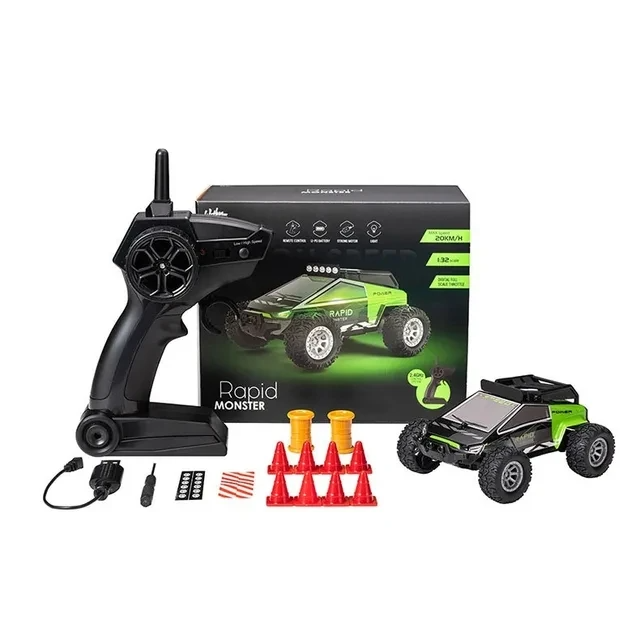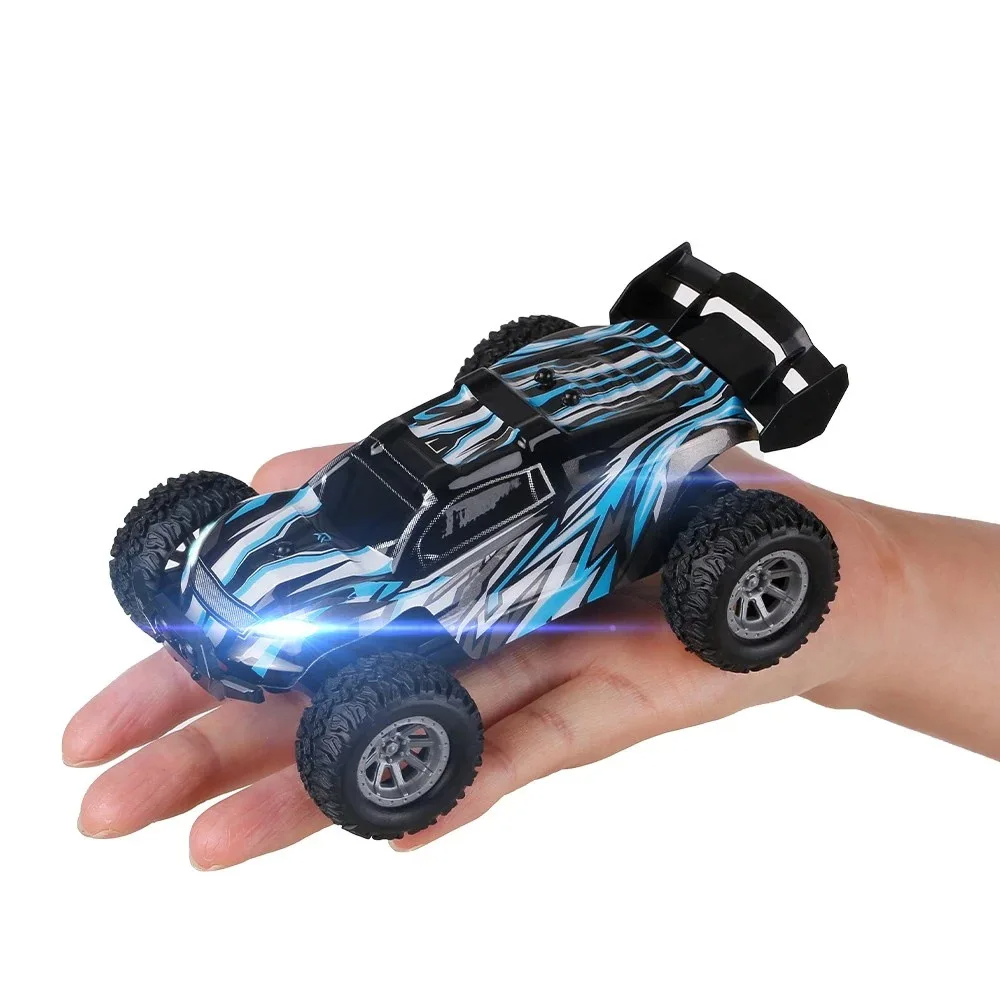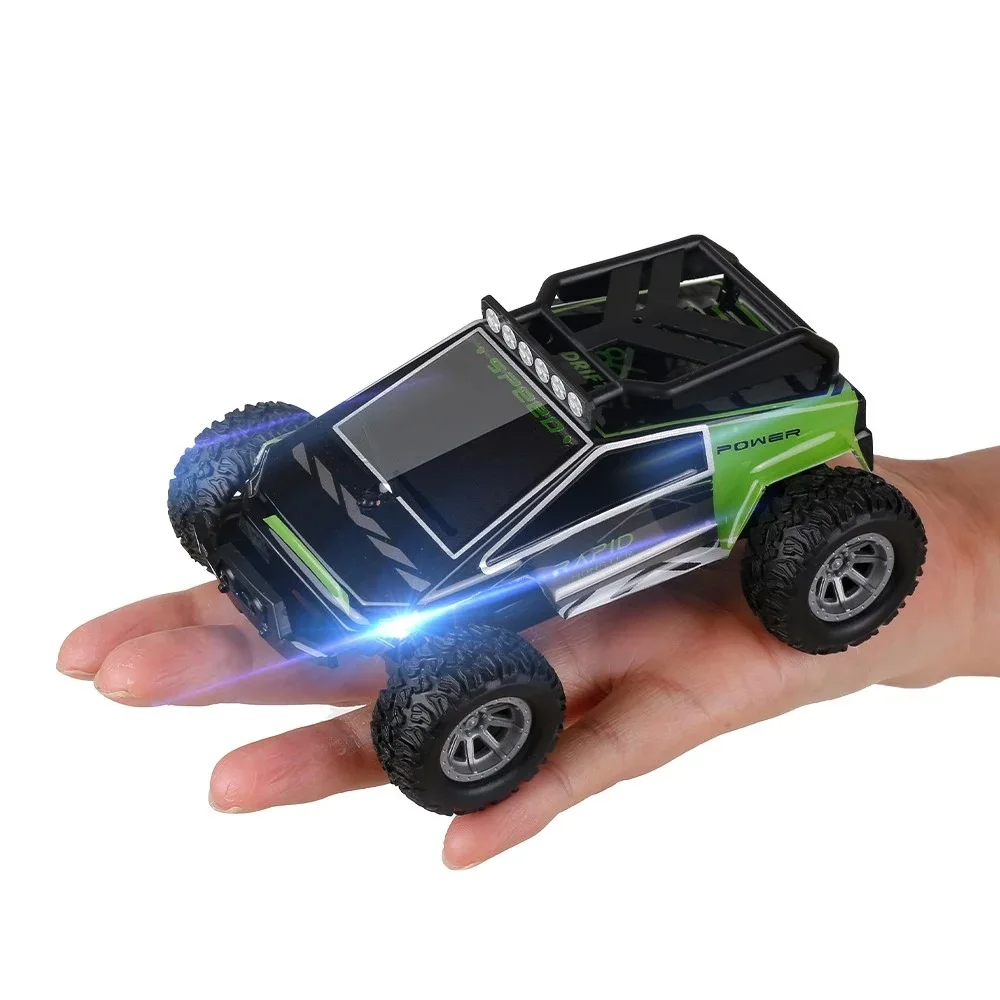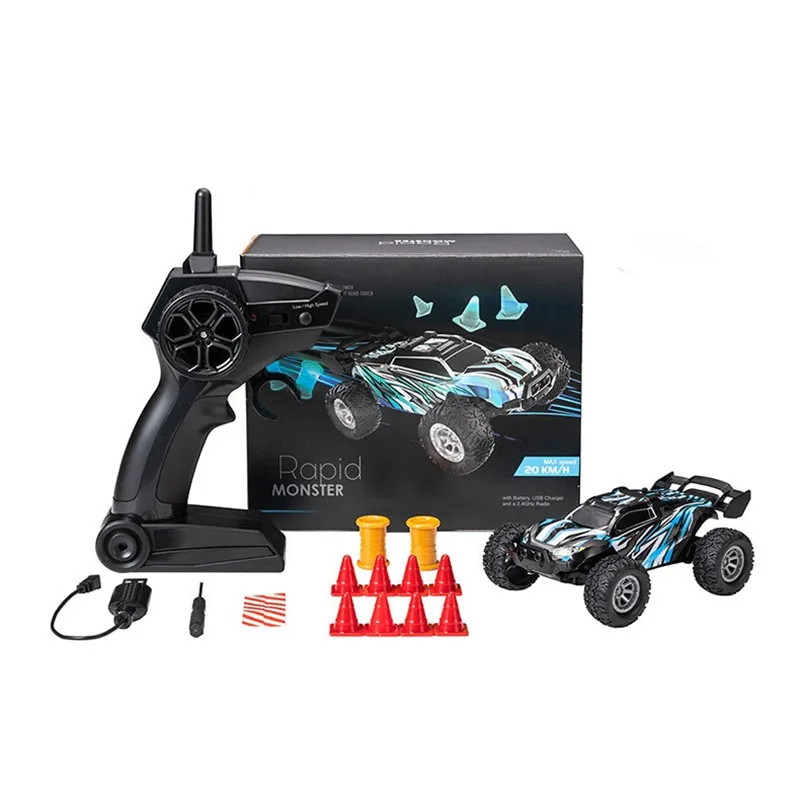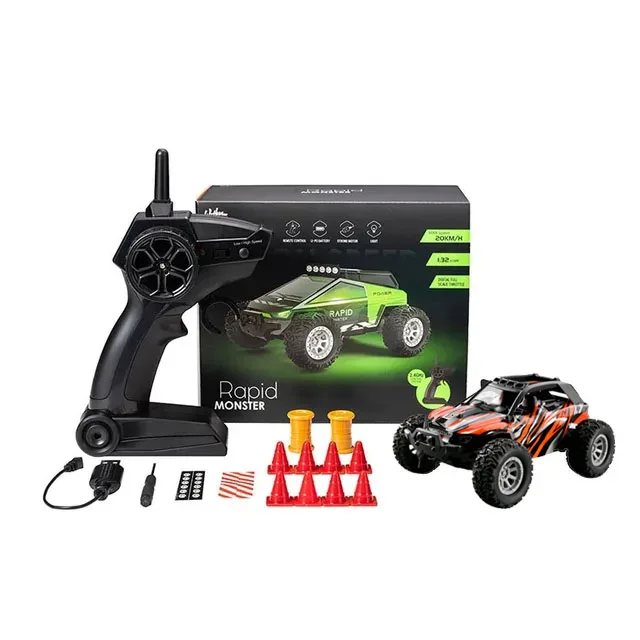Introduction
Radio-controlled (RC) cars((Japanese:ラジコンカー) hold a special place in the world of hobbies and entertainment. These miniature marvels blend engineering, technology, and fun, captivating enthusiasts of all ages. From children discovering the joy of controlling their first RC car to seasoned hobbyists competing in RC racing leagues, these vehicles offer endless possibilities for creativity and excitement. This comprehensive article delves into the origins, key features, benefits, popular models, maintenance tips, comparisons with other hobbies, and future trends of radio-controlled cars. Understanding these elements can deepen your appreciation for this engaging and versatile hobby, whether you’re a novice or a seasoned RC car enthusiast.
Understanding Radio-Controlled Cars
The Evolution of RC Cars
The history of radio-controlled cars dates back to the mid-20th century, with the first commercially viable RC cars emerging in the 1960s. These early models were relatively simple and rudimentary, but they laid the groundwork for the sophisticated RC cars we see today. Over the decades, advances in technology, materials, and engineering have transformed RC cars into high-performance machines capable of remarkable speed, precision, and durability.
Today’s RC cars come in a variety of types, including on-road cars, off-road trucks, buggies, and rock crawlers. Each type is designed to perform optimally in specific conditions, offering enthusiasts a wide range of choices to suit their preferences and environments. The evolution of RC cars has also seen the development of various power sources, from traditional nitro-fueled engines to modern electric and brushless motors, each offering unique advantages and characteristics.
Key Features of RC Cars
Modern RC cars boast a plethora of features designed to enhance performance, control, and durability:
- Power Source: RC cars can be powered by nitro-fueled engines, electric motors, or brushless motors. Electric and brushless motors are known for their efficiency, low maintenance, and impressive speed, while nitro engines offer a more authentic and powerful experience.
- Chassis and Suspension: High-quality materials such as aluminum, carbon fiber, and composite plastics are used to construct the chassis, providing strength and lightweight performance. Advanced suspension systems ensure optimal handling and stability, even on rough terrain.
- Radio System: The radio system includes a transmitter and receiver, allowing users to control the car’s movements with precision. Modern radio systems often feature advanced functionalities such as multiple channels, adjustable settings, and interference-resistant signals.
- Tires and Wheels: RC car tires come in various tread patterns and compounds, designed to provide optimal grip and performance on different surfaces. Wheels are often made from durable materials to withstand the rigors of racing and off-road adventures.
- Electronics and Upgrades: Many RC cars come with adjustable speed controls, servos, and high-capacity batteries, allowing users to fine-tune their performance. Upgrades and customizations are readily available, enabling enthusiasts to optimize their cars for specific needs and preferences.
Understanding these key features helps enthusiasts select the right RC car and make informed decisions about upgrades and maintenance.
Benefits of Engaging with RC Cars
Educational Value and Skill Development
Engaging with RC cars offers more than just entertainment; it provides valuable educational opportunities and skill development. Building and maintaining RC cars involve understanding mechanical components, electronics, and engineering principles. Enthusiasts learn about gears, motors, batteries, and radio systems, gaining hands-on experience that translates into practical knowledge.
Additionally, driving RC cars requires hand-eye coordination, spatial awareness, and precise control. Practicing these skills can improve reaction times and fine motor control, benefiting individuals in various aspects of life. For younger enthusiasts, RC cars can spark an interest in STEM (science, technology, engineering, and mathematics) fields, encouraging curiosity and critical thinking.
Social Interaction and Community
The RC car hobby fosters social interaction and community-building. Enthusiasts often participate in local clubs, online forums, and organized racing events, connecting with like-minded individuals who share their passion. These interactions create opportunities for exchanging knowledge, tips, and experiences, enhancing the overall enjoyment of the hobby.
Local RC car clubs and racing leagues offer a sense of camaraderie and competition, allowing enthusiasts to test their skills and build relationships. Online communities provide a platform for global connections, enabling enthusiasts to collaborate on projects, share their custom builds, and engage in friendly competitions. The social aspect of the RC car hobby adds depth and richness to the experience, making it more fulfilling and enjoyable.
Stress Relief and Mental Well-being
Engaging with RC cars can serve as a therapeutic and stress-relieving activity. The focus required to build, maintain, and drive RC cars helps individuals disconnect from daily stressors and immerse themselves in a rewarding and enjoyable activity. The sense of accomplishment from successfully completing a challenging build or winning a race boosts self-esteem and confidence.
The hobby also promotes mindfulness and relaxation, as enthusiasts concentrate on fine-tuning their cars and navigating complex tracks. The outdoor aspect of RC car racing provides an opportunity to enjoy fresh air and physical activity, further contributing to mental and physical well-being. The therapeutic benefits of engaging with RC cars make it a valuable hobby for individuals seeking a positive and fulfilling pastime.
Customization and Creativity
One of the most appealing aspects of the RC car hobby is the endless possibilities for customization and creativity. Enthusiasts can personalize their RC cars with custom paint jobs, decals, and modifications, expressing their unique style and preferences. Advanced builders can design and fabricate custom parts, experimenting with different materials and configurations to optimize performance.
The process of customizing and upgrading RC cars fosters creativity and problem-solving skills, as enthusiasts explore new ideas and solutions. The ability to tailor RC cars to individual preferences ensures that each build is unique and reflective of the owner’s personality. The creative aspect of the RC car hobby adds depth and satisfaction, making it a rewarding and enjoyable pursuit.
Popular Models of RC Cars
Traxxas Slash 4×4
The Traxxas Slash 4×4 is a popular RC truck known for its durability, performance, and versatility. Designed for off-road racing, the Slash 4×4 features a rugged construction and high-quality components that withstand the rigors of rough terrain. The truck’s four-wheel drive system provides excellent traction and stability, ensuring optimal performance on various surfaces.
Equipped with a powerful electric motor and waterproof electronics, the Slash 4×4 delivers impressive speed and reliability. The adjustable suspension system and oil-filled shocks allow for precise tuning, enabling enthusiasts to optimize handling and performance. The Slash 4×4’s versatility makes it suitable for both beginners and experienced racers, offering a thrilling and engaging RC car experience.
Tamiya TT-02
The Tamiya TT-02 is a well-regarded on-road RC car kit known for its balanced performance and ease of assembly. The TT-02 chassis is designed for touring car racing and features a lightweight, symmetrical design that ensures stability and responsive handling. The car’s four-wheel drive system provides excellent traction and control, making it a popular choice for both casual and competitive racing.
The TT-02 kit offers a great introduction to building RC cars, as it includes all necessary components and detailed instructions. Enthusiasts can customize and upgrade the TT-02 with various aftermarket parts, tailoring the car to their specific preferences and performance goals. The Tamiya TT-02’s combination of accessibility, performance, and customization options make it a favorite among RC car enthusiasts.
ARRMA Infraction 6S BLX
The ARRMA Infraction 6S BLX is a high-performance RC truck designed for speed and power. Known for its stunning looks and advanced features, the Infraction 6S BLX delivers exhilarating speed and agility. Powered by a brushless motor and capable of running on 6S LiPo batteries, this truck reaches speeds of over 80 mph, making it one of the fastest RC vehicles available.
The Infraction 6S BLX features a robust, anodized aluminum chassis and a high-grip rubber tire system, ensuring stability and control at high speeds. The adjustable suspension and advanced electronics allow enthusiasts to fine-tune performance to their liking. The Infraction 6S BLX’s breathtaking speed and cutting-edge technology make it a standout choice for speed enthusiasts and experienced RC car racers.
Axial SCX10 II
The Axial SCX10 II is a popular RC rock crawler known for its realism, durability, and off-road capabilities. Designed to tackle challenging terrains, the SCX10 II features a highly detailed chassis and scale-accurate components that replicate real-world off-road vehicles. The truck’s four-wheel drive system, adjustable suspension, and high-torque motor provide the necessary power and traction to navigate rocks, mud, and uneven surfaces.
The SCX10 II offers a range of customization options, allowing enthusiasts to modify and enhance their trucks with various aftermarket parts and accessories. The truck’s attention to detail and superior performance make it a favorite among rock crawling enthusiasts and scale model builders. The SCX10 II’s combination of realism, durability, and off-road prowess ensures an engaging and rewarding RC car experience.
Comparing RC Cars to Other Hobbies
RC Cars vs. Drones
Both RC cars and drones offer thrilling and engaging experiences, but they cater to different interests and preferences. RC cars provide a hands-on, ground-based driving experience, focusing on speed, control, and terrain navigation. Enthusiasts enjoy building, customizing, and racing their cars, often engaging in competitive events and challenges.
Drones, on the other hand, offer an aerial experience, focusing on flight control, photography, and videography. Drone enthusiasts enjoy piloting their devices, capturing stunning aerial footage, and exploring new perspectives. Both hobbies require different skill sets and provide unique experiences, making the choice between RC cars and drones a matter of personal preference.
RC Cars vs. Model Railroading
RC cars offer a dynamic and interactive experience, with enthusiasts driving and racing their cars in various environments. The hands-on nature of RC car racing provides a sense of excitement and competition, making it an engaging and social hobby.
Model railroading, on the other hand, focuses on creating detailed and realistic miniature railway layouts. Enthusiasts build and customize model trains, tracks, and scenery, replicating real-world railways and landscapes. The hobby offers a more contemplative and creative experience, allowing enthusiasts to express their artistic talents and attention to detail. Both hobbies provide rewarding and enjoyable experiences, with the choice between them depending on individual interests and preferences.
RC Cars vs. Video Gaming
They offer different forms of entertainment and engagement, each with its unique appeal. RC cars provide a physical, hands-on experience, with enthusiasts building, customizing, and racing their cars in various environments.
Video gaming, on the other hand, offers a virtual experience, with players engaging in immersive and interactive digital worlds. Video games provide a wide range of genres and experiences, from racing and simulation to action and adventure. Gaming offers convenience and accessibility, allowing players to engage in their favorite activities from the comfort of their homes.
Both hobbies provide enjoyable and rewarding experiences, with the choice between RC cars and video gaming depending on individual preferences and interests.
Conclusion
Radio-controlled cars represent a dynamic and engaging hobby that blends engineering, technology, and fun. Key features of RC cars include advanced power sources, chassis and suspension systems, radio systems, tires and wheels, and electronics and upgrades. The benefits of engaging with RC cars encompass educational value, skill development, social interaction, stress relief, mental well-being, and customization opportunities. Popular models such as the Traxxas Slash 4×4, Tamiya TT-02, ARRMA Infraction 6S BLX, and Axial SCX10 II offer a range of options for different preferences and performance goals.
Proper maintenance and care, including regular cleaning, inspecting and replacing worn parts, battery maintenance, and lubrication and tuning, ensure that RC cars remain in optimal condition and provide reliable performance. Comparing RC cars to other hobbies highlights their unique appeal and engagement, offering a rewarding and fulfilling experience. Future trends in RC cars technology, such as advanced electronics, sustainable materials, autonomous and AI-powered technology, and customization and modular design, promise to enhance the functionality and enjoyment of RC cars.
Investing in high-quality radio-controlled cars is a valuable and rewarding experience, providing endless possibilities for creativity, skill development, and fun. Whether you’re a novice or a seasoned enthusiast, understanding the nuances of RC cars helps you make informed decisions and maximize your enjoyment of this versatile and engaging hobby. The combination of speed, precision, customization, and future innovations ensures that radio-controlled cars remain a beloved and captivating pastime for generations to come.
